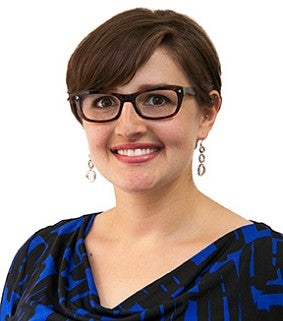Major: Chemistry
Chemistry Professor at University of Wisconsin at La Crosse

In the middle of my sophomore year at the UO, I wanted to be a doctor and I thought it would be helpful to have laboratory experience to prepare for medical school. On the advice of a friend already doing undergraduate research, I approached Professor David Tyler in the Department of Chemistry, and subsequently joined his laboratory for the rest of my undergraduate career. I worked with a graduate mentor, Nate Szymczak, who assigned me my very own project preparing ruthenium piano-stool compounds for catalysis. My research there eventually became my CHC thesis, Ruthenium Piano-Stool Complexes and Their Potential Applications in Catalysis, and for which I won the Inorganic Chemistry Student of the Year Award.
“ Undergraduate research not only helped me be a better scientist, it also helped me meet new people, make connections, and identify key leaders in my field. ”
— YEVGENIYA TUROV
My laboratory work led me to realize my passion for chemistry, and I chose to pursue graduate education at the University of Wisconsin at Madison, where I finished my PhD this past August. I cannot overemphasize how important undergraduate research was in shaping both my education and my career goals. What I learned in the classroom was interesting and relevant, but working in a research laboratory made me learn creativity, independence, and chemical concepts in a way that is simply not possible in a classroom. I think that even had I chosen not to pursue a graduate degree, I would have been infinitely more prepared to enter the workforce in any job, chemistry or otherwise, than a peer who hadn’t had the opportunity to do undergraduate research because research requires a person to reach new heights of critical thinking and understanding.
Undergraduate research not only helped me be a better scientist, it also helped me meet new people, make connections, and identify key leaders in my field. I also became a better speaker because I had to present my research and answer questions about my work. This was extremely helpful during my graduate work because I knew where to find answers to my questions, how to work collaboratively, and how to stay updated on current happenings in the field. The next step in my career is teaching undergraduate chemistry at the University of Wisconsin at La Crosse. I will be teaching laboratories, and encouraging students to pursue undergraduate research to help them further their careers as scientists and independent thinkers.
